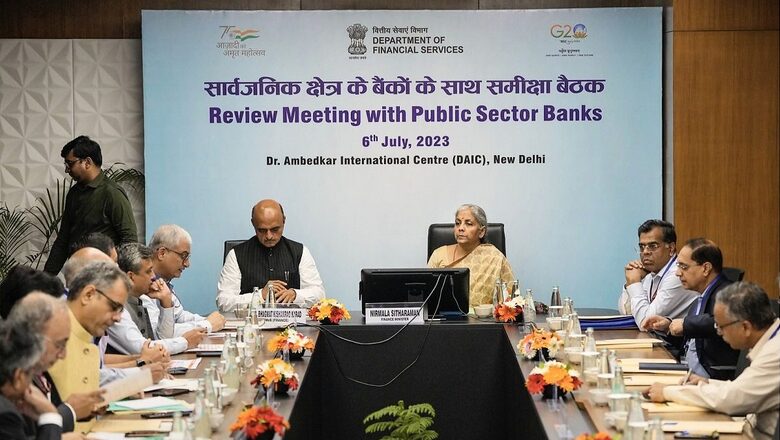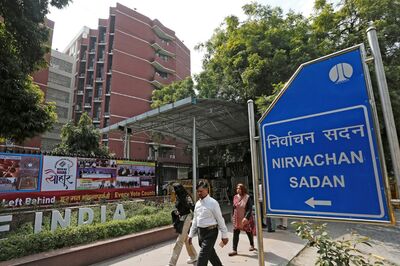
views
Finance Minister Nirmala Sitharaman on Thursday, July 6, met the heads of public sector banks (PSBs) and reviewed the financial performance of as many as 12 lenders. This is the first review meeting after the 2022-23 financial results.
“Union Finance Minister Smt. @nsitharaman chairs the meeting to review performance of Public Sector Banks #PSBs on various financial, efficiency and health parameters, in New Delhi, today,” the Ministry of Finance said in a tweet on Thursday.
Union Finance Minister Smt. @nsitharaman chairs the meeting to review performance of Public Sector Banks #PSBs on various financial, efficiency and health parameters, in New Delhi, today.The meeting is also being attended by Union Minister of State for Finance Dr… pic.twitter.com/gekknV5SP4
— Ministry of Finance (@FinMinIndia) July 6, 2023
The meeting is also being attended by Union Minister of State for Finance Bhagwat Karad; Finance Secretary and Secretary Expenditure Dr T V Somanathan. Apart from these, secretaries of financial services department, DIPAM, public enterprises, corporate affairs and housing are also attending.
Other officials who are attending the meeting are chief economic advisor, SBI chairman, and MD & CEOs of various public sector banks.
In the last fiscal, PSBs together posted a record profit of Rs 1.04 lakh crore, with market leader State Bank of India (SBI) accounting for nearly half of the total earnings.
From posting a total net loss of Rs 85,390 crore in 2017-18, the PSBs have come a long way as their profit touched Rs 1,04,649 crore in 2022-23.
As per the latest Financial Stability Report (FSR), the gross non-performing assets (GNPAs) ratio for banks fell further to a ten-year low of 3.9 per cent as of March 2023. The central bank said the GNPAs are expected to improve further to 3.6 per cent in the baseline scenario.
Last week, the finance minister said banks need to “build on laurels” by following the best corporate governance principles.
“Banks should not sit back and revel in success. They should follow best corporate governance practices, adhere to regulatory norms, ensure prudent liquidity management, and continue to focus on having robust asset-liability and risk management,” she had said.
She stressed that the Indian economy has moved away from the ‘twin balance sheet problem’ to ‘twin balance sheet advantage’.




















Comments
0 comment